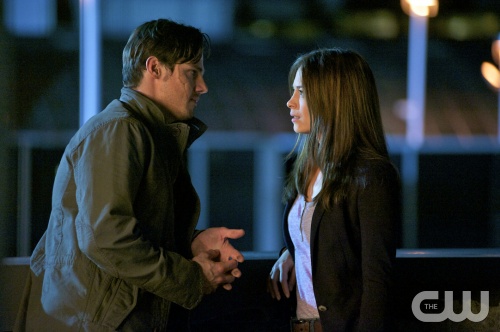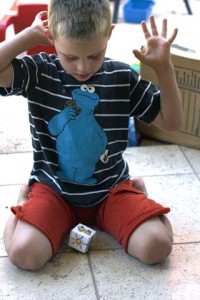It is still my biggest challenge in storytelling that I cannot select the *perfect* words for a given tale and be done with my work on it. The work is the continual internalization of the story (ostensibly in images– which I’ve learned is not my first language) in such a way that I will feel confident to convey the heart of the story, whether or not I use my most-favorite words.
Of course, between my love for precision, and my gift (I have to call it that, I didn’t earn it) of memorization, I find myself with the impulse to “cram” before every presentation, latching on to my favorite phrases like handfuls of candy, hoping the corner of a wrapper will be enough to hold on to this precious sweetness until I can share it with someone who’s never tasted it before.
From then on, with each day that passed, as the black serpents grew stronger, nourished by their ghastly food, Zohak grew ever more hardened, becoming more cruel and ambitious.
“I have seen the world, Rabbi, and I know that God cannot be here.”
“What would God have to do,” asked the rabbi, “to prove Himself to you, young Chiam who has seen so much of the world?”
“He would have to make a wonder, Rabbi. God would have to make a wonder.”
For all her joy and relief she was near tears.
Every time I tell a story, it is a surrender to imperfection. Not because I’m sloppy or don’t care enough, but because every live performance contains variables, and aside from memorizing the entire piece I can’t guarantee how exactly it will go.
Surrender to imperfection.
Accepting my limits, and believing that the story itself is more important than flawless delivery, as if it could be spoken as poetry.
It reminds me of a G.K. Chesterton quote, “If a thing’s worth doing, it’s worth doing badly.”
I latched on to that saying in the beginning of my fight against crippling perfectionism.
Now I’m just a perfectionist. Or maybe I have perfectionism, like most people get the common cold. It can be an irritation, a distraction from the simple experience and enjoyment of life. It reminds me that failure is all around me, like dog poop, just waiting to be stepped in if I don’t pay close attention to every. single. step.
The difference between this and crippling perfectionism is that I’m no longer afraid of scraping dog poo off my shoe. It’s disappointing, frustrating, and sometimes embarrassing, but it’s not the end of the world. Or even the walk.
That said, I’m not bad at storytelling. A number of people tell me I’m quite good. And everyone should know that the vast majority of stories don’t take themselves so seriously that they are massively improved upon memorization. I think my impulse to memorization is tied to my drive for perfection. There’s a competitive element in my nature that wants to get everything “correct” and that element is tangled with an instinct that sees being right as a sort of armor.
Precision as armor is definitely a hold-over attitude from my journalism mind. When I’m writing about something that could make people uncomfortable (especially if they might feel the need to pass that discomfort on to me), getting all my facts/quotes/statistics accurate is the best way I know to shield myself.
Uncertainty feels like liability.
Uncertainty = liability is a crippling mindset to bring into either noveling or storytelling.
In noveling, this shows up as the critical editor, mocking or damning material before it is evaluation-time, squelching the baby bird of a rough draft rather than letting it hatch, breaking itself free with the muscles that must be developed by the fight of its escape. The critical editor’s voice might purport to try and help open the egg, but most often it is too clumsy and can crush the shell while it challenges the blind and featherless life inside to prove its right to exist.
In storytelling, this crippling mindset demands a perfection in practice that is not possible before practice. One of the great paradoxes of learning a story is you always have to start before you’re ready. Ultimately, to make a story mine, I have to step away from carving filigree, from expecting the tools of noveling (falling in love with whole paragraphs of beautiful prose), and start making my story selections based on their content, rather than the poetry in the pen of the collector.
In storytelling, as with noveling and my non-fiction work, the key seems to be know and choosing what’s important to me. Once that core is in place I have the motivation that leads to the attention-span that results in quality work.
I’m still figuring out which tools are best for which area, but recognizing a) different forms thrive in difference circumstances, and b) it makes sense that my __________ muscles will get fatigued through prolonged use, I’m learning to trust my instincts. Which, considering I’ve only acknowledged them for the last five years or so, is an encouraging point of growth.



